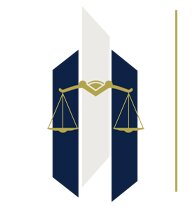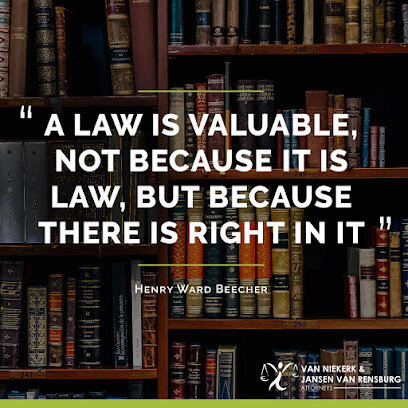Best Drugs & Medical Devices Lawyers in South Africa
Share your needs with us, get contacted by law firms.
Free. Takes 2 min.
Or refine your search by selecting a city:
List of the best lawyers in South Africa
About Drugs & Medical Devices Law in South Africa
Drugs and medical devices law in South Africa is a critical area of legal practice that encompasses a wide range of issues including the regulation, distribution, marketing, and safety of pharmaceuticals and medical devices. The regulatory framework is primarily governed by the Medicines and Related Substances Act (Act 101 of 1965) and overseen by the South African Health Products Regulatory Authority (SAHPRA). This body ensures that all products are safe for use, effective, and of high quality. The laws aim to protect public health and ensure that consumers are not exposed to unsafe or ineffective products.
Why You May Need a Lawyer
There are several instances where you might need legal assistance in the field of drugs and medical devices. These include:
- Facing legal issues related to compliance with drug registration and marketing regulations.
- Involvement in disputes regarding patent infringement or intellectual property rights for pharmaceuticals and medical devices.
- Litigation related to product liability claims if a medical device or drug adversely affects a patient.
- Assistance in navigating complex regulatory frameworks to bring a new drug or medical device to market.
- Handling cases surrounding consumer protection laws and advertising standards for medical products.
Local Laws Overview
South Africa's regulatory framework focuses on ensuring public safety and compliance with international standards. Key aspects of local laws include:
- Medicines and Related Substances Act: This governs the control of medicines and provides guidelines for the registration and marketing of drugs and medical devices.
- Patent Laws: Protects pharmaceutical inventions and medical device innovations in South Africa.
- Consumer Protection Act: Safeguards consumers against misleading marketing and ensures fair business practices.
- SAHPRA: The principal body responsible for the regulation and oversight of medicines and medical devices.
- Clinical Trials Regulation: Guidelines for conducting clinical trials to ensure ethical standards and subject safety.
Frequently Asked Questions
What is the first step in registering a medical device in South Africa?
The first step is to submit an application to the South African Health Products Regulatory Authority (SAHPRA), which involves providing comprehensive documentation about the product’s safety, efficacy, and manufacturing processes.
How long does it typically take to get a drug approved by the SAHPRA?
The approval process can vary but generally takes several months to a few years, depending largely on the nature of the drug and the completeness of the submitted application.
Can I import unregistered medical devices for personal use in South Africa?
Yes, but it requires special permission from the SAHPRA, which is assessed on a case-by-case basis, focusing on the necessity and safety of the device.
What should I do if I believe a medical device caused harm?
If harmed by a device, immediately stop using it and seek medical attention. Then, report the adverse event to the SAHPRA and consult a legal professional to explore potential claims for compensation.
Are there specific advertising regulations for pharmaceutical companies in South Africa?
Yes, the Medicines and Related Substances Act outlines strict advertising regulations to ensure that promotions do not mislead consumers and are in line with health standards.
How does the patent law impact generic drugs in South Africa?
Patent law allows original drugs to maintain exclusive rights for a set period, after which generic versions can be produced, subject to compliance with local laws.
What role does the Consumer Protection Act play in drugs and medical devices?
The Act ensures consumers are protected against false claims and substandard products, providing a mechanism for complaints and remedies.
Can a foreign company register a medical device in South Africa?
Yes, foreign companies can register devices through a local affiliate or representative who can act on their behalf during the registration process.
What are the obligations of pharmacists regarding counterfeit drugs?
Pharmacists are legally obligated to ensure that all medications dispensed are genuine, appropriately sourced, and comply with SAHPRA’s standards.
How are conflicts over drug patents resolved in South Africa?
Conflicts are typically resolved through negotiation, litigation, or arbitration depending on the circumstances and agreements in place between parties.
Additional Resources
For those seeking further information on drugs and medical devices in South Africa, the following resources may be useful:
- South African Health Products Regulatory Authority (SAHPRA): The main regulatory body for pharmaceutical products and devices.
- Department of Health: Provides guidelines and public health information.
- National Consumer Commission (NCC): Offers assistance and information on consumer rights and protection.
- Patent Office of South Africa: Provides guidelines and support for patent registration and disputes.
Next Steps
If you require legal assistance in the area of drugs and medical devices, consider the following steps:
- Research and select a legal professional with relevant experience in South African pharmaceutical and medical device law.
- Prepare all necessary documentation and information related to your case or query to ensure efficient and effective consultation.
- Schedule a consultation to discuss your specific circumstances, understanding the costs, and potential outcomes involved.
- Follow the legal advice provided and consider seeking a second opinion if necessary to ensure all aspects of your case are thoroughly considered.
Lawzana helps you find the best lawyers and law firms in South Africa through a curated and pre-screened list of qualified legal professionals. Our platform offers rankings and detailed profiles of attorneys and law firms, allowing you to compare based on practice areas, including Drugs & Medical Devices, experience, and client feedback.
Each profile includes a description of the firm's areas of practice, client reviews, team members and partners, year of establishment, spoken languages, office locations, contact information, social media presence, and any published articles or resources. Most firms on our platform speak English and are experienced in both local and international legal matters.
Get a quote from top-rated law firms in South Africa — quickly, securely, and without unnecessary hassle.
Disclaimer:
The information provided on this page is for general informational purposes only and does not constitute legal advice. While we strive to ensure the accuracy and relevance of the content, legal information may change over time, and interpretations of the law can vary. You should always consult with a qualified legal professional for advice specific to your situation.
We disclaim all liability for actions taken or not taken based on the content of this page. If you believe any information is incorrect or outdated, please contact us, and we will review and update it where appropriate.
Browse drugs & medical devices law firms by city in South Africa
Refine your search by selecting a city.














